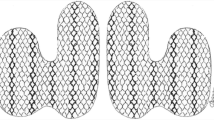Quality of life data and patient satisfaction are important issues in estimating the outcome of laparoscopic antireflux surgery (LARS). Long-term of quality of life assessment has not yet received wide attention. The aim of this prospective study was to evaluate surgical outcome, including quality of life and patient satisfaction, after laparoscopic "floppy" Nissen fundoplication up to 3 years after surgery. Between 1994 and 1996, a total of 150 consecutive patients with severe gastroesophageal reflux disease underwent laparoscopic "floppy" Nissen fundoplication. Quality of life was evaluated using the Gastrointestinal Quality of Life Index (GIQLI). The GIQLI questionnaire was given to the patients prior to surgery, and again 3 months, 1 year, and 3 years postoperatively. In addition, 24-hour pH monitoring and esophageal manometry were performed preoperatively and at each follow-up date. Finally, surgical side-effects and patient satisfaction with the surgical outcome were evaluated 3 years after LARS. Postoperatively lower esophageal sphincter pressure improved significantly in all patients, whereas pH values showed normal data in all but 5 patients. Before surgery, all patients had a poor quality of life (GIQLI score, 90.1 ± 8.9 points). Postoperatively, GIQLI improved significantly (p <.01) and remained stable for at least 3 years, with a mean value of 123.7 ± 9.8 points. This is comparable to 122.6 ± 8.5 points of healthy individuals. Ninety-eight percent of the patients rated their satisfaction with surgical treatment as excellent or good and would undergo surgery again if necessary. Nine patients suffered from minimal surgical side-effects, but these did not significantly impair their quality of life. Laparoscopic reoperation was performed in 2 patients 3 months after initial surgery because of severe dysphagia. Both patients were free of symptoms 3 years after surgery. The efficacy and long-term outcome of treatment of gastroesophageal reflux disease with laparoscopic "floppy" Nissen fundoplication can be evaluated by objective testing, but also with subjective judgment of the patient, including quality of life assessment.
Similar content being viewed by others
Author information
Authors and Affiliations
Rights and permissions
About this article
Cite this article
Granderath, F., Kamolz, T., Schweiger, U. et al. Quality of Life, Surgical Outcome, and Patient Satisfaction Three Years after Laparoscopic Nissen Fundoplication. World J Surg 26, 1234–1238 (2002). https://doi.org/10.1007/s00268-002-6416-3
Published:
Issue Date:
DOI: https://doi.org/10.1007/s00268-002-6416-3




